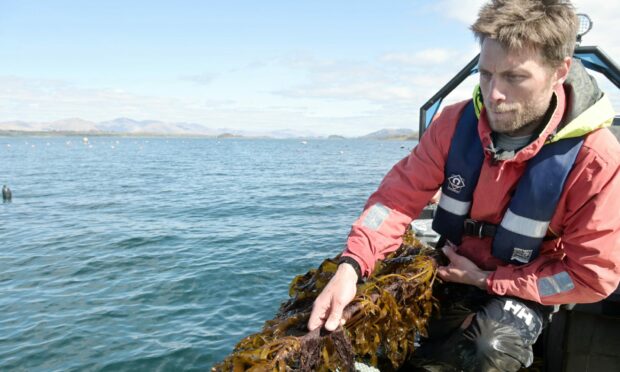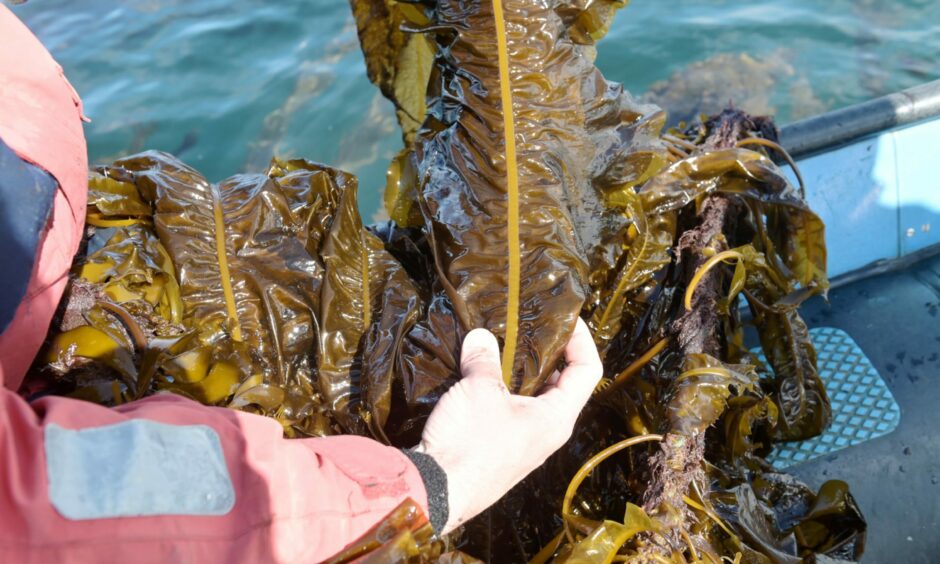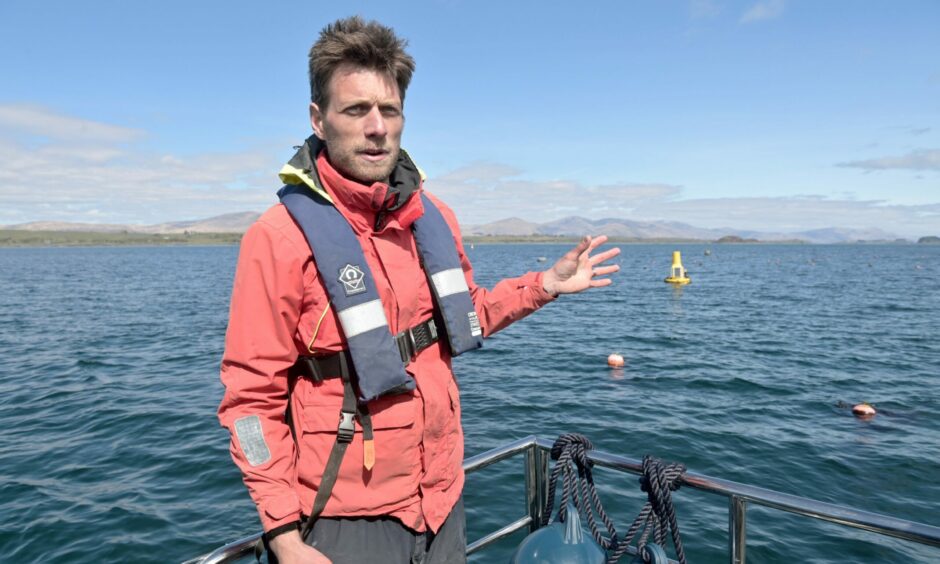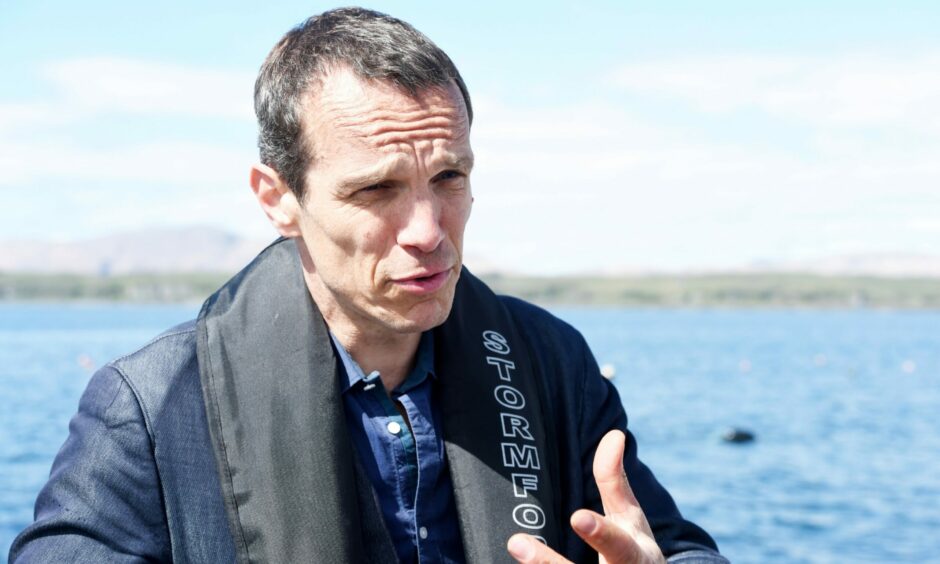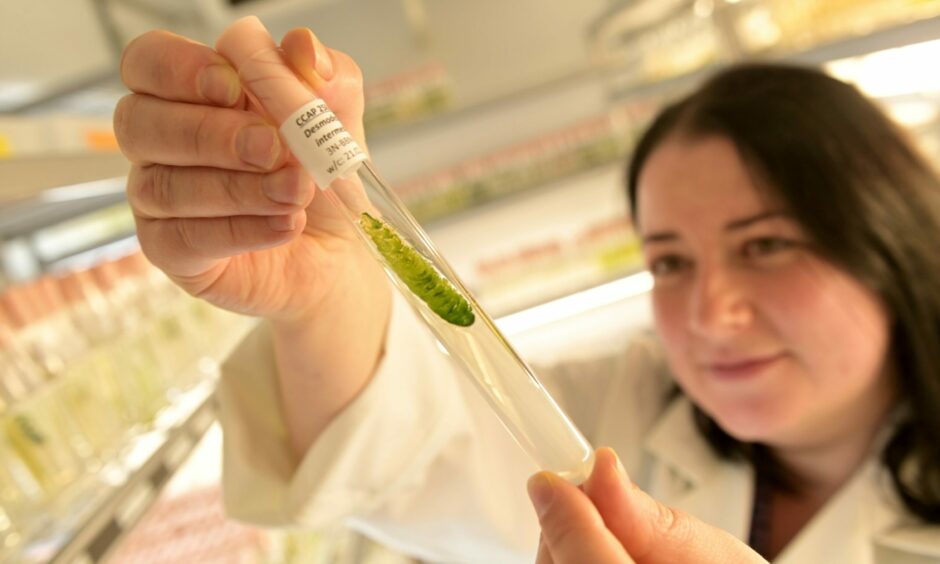There is an abundance of it in the Highlands.
And now the area is all set to tap into the multi-billion dollar a year seaweed farming industry.
An Oban-based laboratory has launched the UK’s first ever dedicated Seaweed Academy to help businesses set up seaweed farms.
Demand for seaweed has grown rapidly in recent years, with it being used in everything from gourmet restaurants to livestock feed.
The fact that it is environmentally friendly and easy to grow makes it even more appealing.
Seaweed products are being used to replace plastic and cotton. It is the main ingredient in innovative new food wrappings which can be eaten and are biodegradable.
The Scottish Association for Marine Science (Sams) at Oban has carried out research and gained knowledge by studying its own seaweed farm in the Sound of Kerrera.
This has helped create the Seaweed Academy – the UK’s first dedicated seaweed industry facility.
It means that Sams can offer advice to start-ups, train workers and share the latest research to help businesses develop.
The £407,000 funding for the project has come from the UK Government’s Community Renewal Fund.
Ahead of the launch, 200 primary school children visited Sams on Monday to learn more about seaweed, its uses and its potential.
Other invited guests had the chance to visit the Sams seaweed farm and the seaweed nursery, where seed stock is grown ready to be deployed on seaweed farms.
The official opening included a panel session and a host of speakers including Vincent Doumeizel of Lloyd’s Register Foundation and United Nations Global Compact; Laurence Rockey, director of the UK Government’s Scotland Office; Prof Todd Walker, Principal and Vice-Chancellor of University of the Highlands and Islands (UHI); and Diana Murray, chairwoman of the Sams board.
Globally, the seaweed farming industry has boomed and is estimated to be worth around $15 billion (£11.9 billion) per annum.
However, the vast majority of this activity is in Asia and there is huge growth potential in Europe, with growing demand.
Low carbon footprint
Already used extensively in food ingredients, agriculture, cosmetics and pharmaceuticals, seaweed has a low carbon footprint, using no fresh water and with minimal land-based infrastructure.
Mr Doumeizel said: “12,000 years ago, human beings moved out of prehistory when they began cultivating plants on land. Today, our growing population and pressing ecological concerns lead us to look once more at this forgotten ocean treasure.
“Education is absolutely critical here as we collectively need to learn from this past experience in the ocean to build a sustainable future on land.
“A Seaweed Academy to train future seaweed pioneers is the best way to reconnect altogether with sea vegetables.
“It may well be a new revolution for our civilization, a Seaweed Revolution!”
The Seaweed Academy will be operated by Sams, in partnership with Sams Enterprise and UHI Argyll, a fellow academic partner within UHI. It will deliver immediate economic benefit to Argyll and Bute.
High value markets
It also aims to stimulate the growth of UK seaweed aquaculture, exploring high-value markets, and using the latest research to increase the competitiveness of UK products globally.
Sams will promote seaweed production as a means of cleaning the sea – as seaweed helps to absorb pollution from fish farms. It breaks also down carbon, mitigating the impacts of climate change.
Sams director Prof Nick Owens said: “Using our own seaweed farms and the most up to date research, we have been laying foundations for a thriving UK seaweed farming industry.
“We are excited to officially open the Seaweed Academy and demonstrate how we can provide a centre for training, education and business development.
“Sams works internationally on seaweed research and we are well placed to deliver the most up-to-date advice for start-ups and existing farmers who wish to develop their business.
“Seaweed farming is an industry that can support coastal communities, like the ones we have across the Highlands and Islands, while showing others an example of the best of the blue economy.”
The Sams Ocean Explorer Centre (OEC) will also develop education materials to help raise awareness of seaweed farming and climate change.
This will range from storytelling in primary schools to workshops for Higher/A-level studies.
Unlocking algae’s potential
Sams also plans to unlock the potential for algae to be used in new sustainable products with the opening of a new £681,641 centre.
The Culture Collection for Algae and Protozoa (CCAP), based at Sams, holds around 3,000 strains of microscopic organisms such as marine and freshwater algae, cyanobacteria and protozoa, as well as some seaweeds and seaweed pathogens.
At nearly 100-years-old, the collection will be at the core of a new centre for algae production and analysis, the CCAP-ARIES (Algae Research, Innovation and Environmental Science) Centre.
The state-of-the-art facility will help scientists around the world to discover new products and medicines and to understand the natural world in a changing climate.
Funding comes from the UK Research and Innovation’s (UKRI) Natural Environment Research Council (NERC), which also funds the collection’s core running costs.
